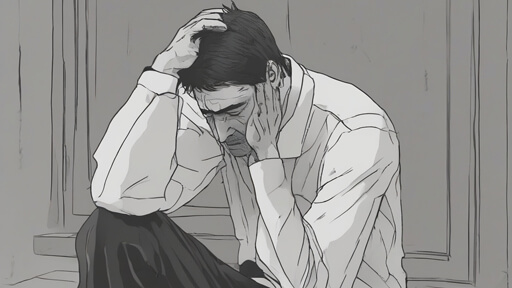Understanding Intrusive Thoughts

Intrusive thoughts are unwelcome, involuntary thoughts, images, or memories that are disturbing or distressing. These thoughts can be about various subjects, ranging from the mundane to the shocking, and they can cause significant emotional discomfort. Understanding intrusive thoughts is crucial for mental well-being and can aid in managing their impact on daily life.
Intrusive thoughts are fairly common, affecting a large portion of people globally. It’s important to understand you are not alone, they often pop into the mind without warning and can be highly unsettling. These thoughts can be violent, sexual, or socially inappropriate, which makes them particularly distressing. However, it’s important to note that having intrusive thoughts does not mean an individual will act on them; these thoughts are not indicative of a person’s desires or intentions.
Causes of Intrusive Thoughts
The exact cause of intrusive thoughts is not fully understood, but several factors can contribute to their occurrence:
- Stress and Anxiety: High levels of stress and anxiety can trigger intrusive thoughts. When the brain is under pressure, it may produce more random thoughts as a coping mechanism.
- Obsessive-Compulsive Disorder (OCD): Individuals with OCD are more prone to experiencing intrusive thoughts. OCD involves recurring, unwanted thoughts (obsessions) and repetitive behaviors (compulsions) that the person feels driven to perform.
- Post-Traumatic Stress Disorder (PTSD): Traumatic experiences can lead to intrusive memories and thoughts related to the trauma. These thoughts can be vivid and disturbing, significantly impacting daily life.
- Depression: Depressive states can also trigger intrusive thoughts, particularly those that are negative or self-critical.
- Brain Chemistry: Neurotransmitter imbalances, particularly in serotonin, can play a role in the emergence of intrusive thoughts. Serotonin is linked to mood regulation, and its imbalance can lead to various mental health issues.
Types of Intrusive Thoughts
Intrusive thoughts can be categorised into different types based on their content:
- Violent Thoughts: These involve thoughts of harming oneself or others. They can be particularly distressing because they are often in direct contradiction to the person’s values and feelings.
- Sexual Thoughts: These include unwanted sexual images or fantasies. They can be about inappropriate subjects or situations, causing significant discomfort and guilt.
- Blasphemous Thoughts: For individuals with strong religious beliefs, intrusive thoughts can take the form of blasphemous ideas or images, leading to feelings of guilt and anxiety.
- Socially Inappropriate Thoughts: These involve thoughts that are socially unacceptable, such as making inappropriate comments or behaving in an embarrassing manner in public.
Managing Intrusive Thoughts
While intrusive thoughts can be distressing, there are several strategies to manage them:
- Cognitive Behavioral Therapy (CBT): CBT is an effective treatment for managing intrusive thoughts. It involves identifying and challenging negative thought patterns and replacing them with healthier ones.
- Mindfulness and Meditation: Practicing mindfulness can help individuals detach from their intrusive thoughts. Meditation encourages observing thoughts without judgment, reducing their emotional impact.
- Medication: In some cases, medication may be necessary to manage intrusive thoughts, particularly if they are related to conditions like OCD or depression. Antidepressants and anti-anxiety medications can help regulate brain chemistry.
- Exposure and Response Prevention (ERP): ERP is a type of therapy often used for OCD. It involves exposing the person to the source of their anxiety in a controlled manner and preventing the usual compulsive response.
- Healthy Lifestyle: Maintaining a healthy lifestyle can reduce stress and anxiety, which can, in turn, reduce the frequency and intensity of intrusive thoughts. Regular exercise, a balanced diet, and sufficient sleep are crucial.
- Support Groups and Therapy: Talking to others who understand can be incredibly comforting. Support groups and therapy provide a safe space to share experiences and coping strategies.
Misconceptions About Intrusive Thoughts
There are several misconceptions about intrusive thoughts that can exacerbate the distress they cause:
- Belief in Action: One common misconception is that having a thought means a person wants to act on it. In reality, intrusive thoughts are involuntary and do not reflect an individual’s true desires or intentions.
- Mental Health Indicator: Another misconception is that intrusive thoughts are a sign of a severe mental health issue. While they can be associated with conditions like OCD or PTSD, they are also a normal part of the human experience.
- Uniqueness: Many people believe they are alone in experiencing intrusive thoughts. This belief can lead to feelings of isolation and shame. However, intrusive thoughts are widespread and experienced by many people.
The impact of intrusive thoughts can vary quite a bit. For some, they are a minor annoyance, while for others, they can be debilitating. Intrusive thoughts can interfere with daily life, relationships, and self-esteem. They can lead to avoidance behaviours, where individuals avoid situations that might trigger their thoughts, thereby limiting their activities and interactions.
Seeking Help
If intrusive thoughts are significantly impacting your life, it’s important to seek professional help. A mental health professional can provide guidance and support, helping individuals develop coping strategies and, if necessary, recommending treatment options like therapy or medication.
If you would like to discuss or get help with unwanted intrusive thoughts by speaking to a professional then contact us today.
